The Times is a British daily national newspaper,

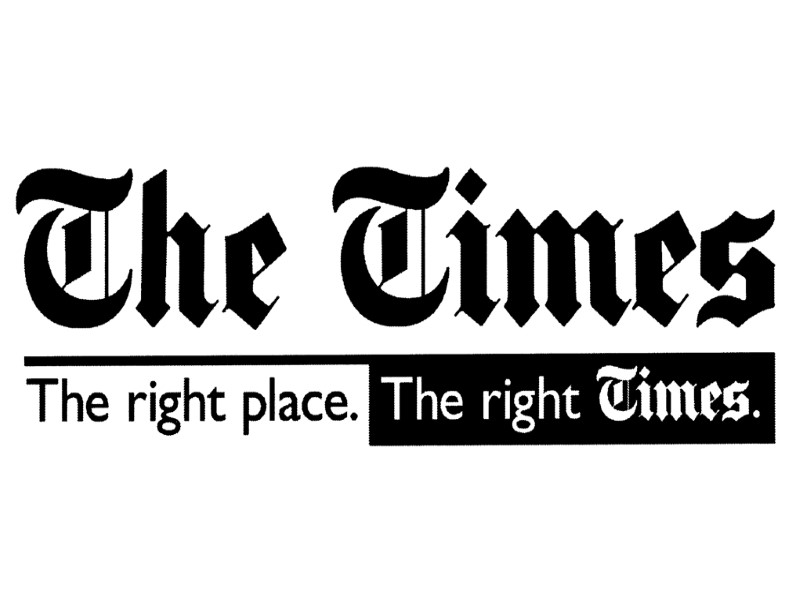
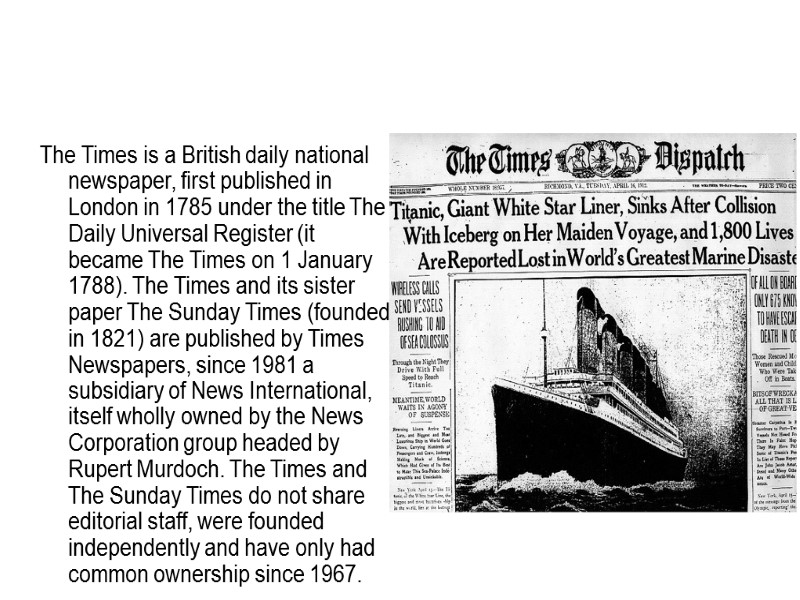
The Times is a British daily national newspaper, first published in London in 1785 under the title The Daily Universal Register (it became The Times on 1 January 1788). The Times and its sister paper The Sunday Times (founded in 1821) are published by Times Newspapers, since 1981 a subsidiary of News International, itself wholly owned by the News Corporation group headed by Rupert Murdoch. The Times and The Sunday Times do not share editorial staff, were founded independently and have only had common ownership since 1967.
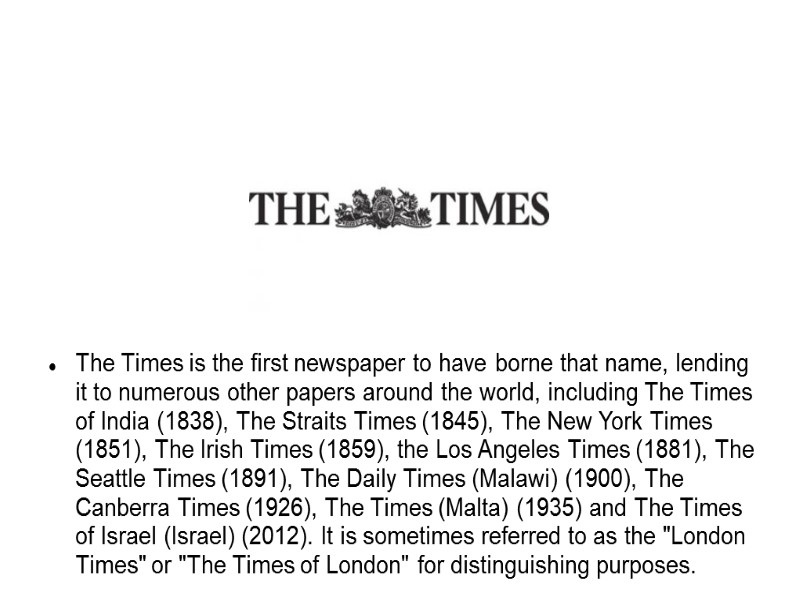
The Times is the first newspaper to have borne that name, lending it to numerous other papers around the world, including The Times of India (1838), The Straits Times (1845), The New York Times (1851), The Irish Times (1859), the Los Angeles Times (1881), The Seattle Times (1891), The Daily Times (Malawi) (1900), The Canberra Times (1926), The Times (Malta) (1935) and The Times of Israel (Israel) (2012). It is sometimes referred to as the "London Times" or "The Times of London" for distinguishing purposes.
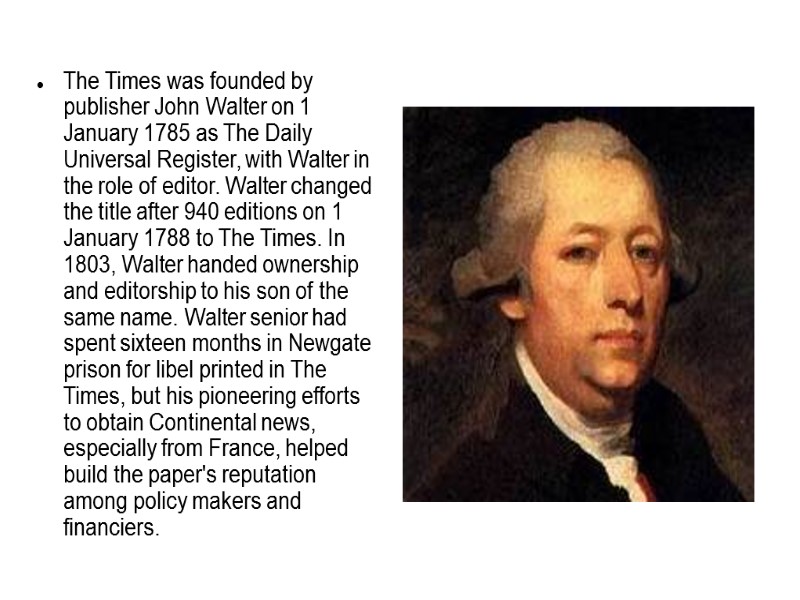
The Times was founded by publisher John Walter on 1 January 1785 as The Daily Universal Register, with Walter in the role of editor. Walter changed the title after 940 editions on 1 January 1788 to The Times. In 1803, Walter handed ownership and editorship to his son of the same name. Walter senior had spent sixteen months in Newgate prison for libel printed in The Times, but his pioneering efforts to obtain Continental news, especially from France, helped build the paper's reputation among policy makers and financiers.
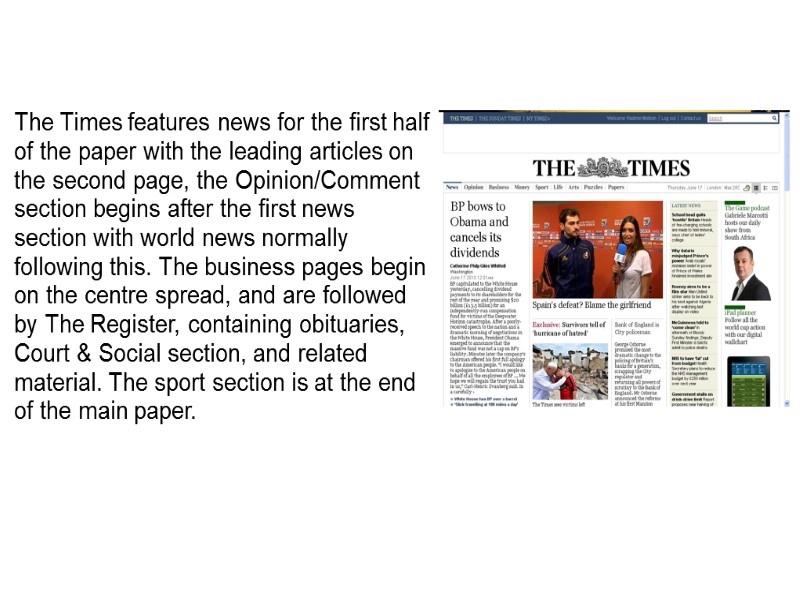
The Times features news for the first half of the paper with the leading articles on the second page, the Opinion/Comment section begins after the first news section with world news normally following this. The business pages begin on the centre spread, and are followed by The Register, containing obituaries, Court & Social section, and related material. The sport section is at the end of the main paper.
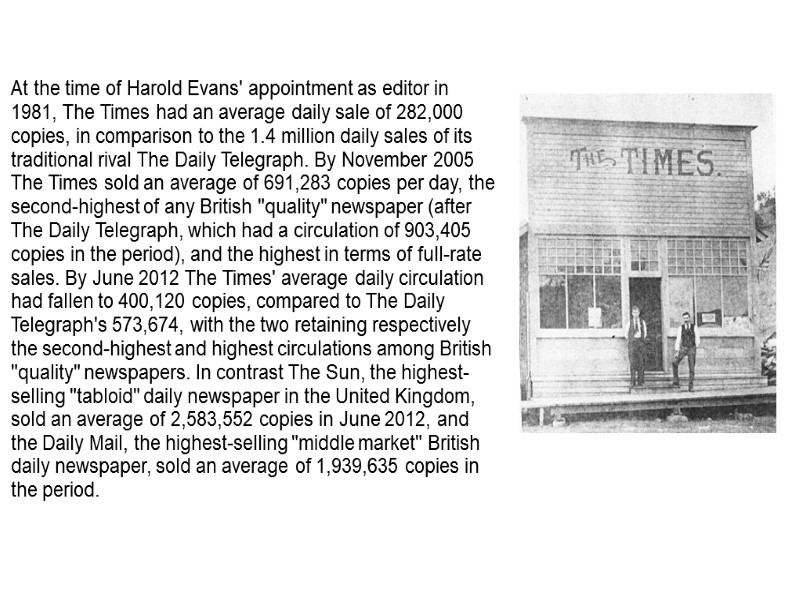
At the time of Harold Evans' appointment as editor in 1981, The Times had an average daily sale of 282,000 copies, in comparison to the 1.4 million daily sales of its traditional rival The Daily Telegraph. By November 2005 The Times sold an average of 691,283 copies per day, the second-highest of any British "quality" newspaper (after The Daily Telegraph, which had a circulation of 903,405 copies in the period), and the highest in terms of full-rate sales. By June 2012 The Times' average daily circulation had fallen to 400,120 copies, compared to The Daily Telegraph's 573,674, with the two retaining respectively the second-highest and highest circulations among British "quality" newspapers. In contrast The Sun, the highest-selling "tabloid" daily newspaper in the United Kingdom, sold an average of 2,583,552 copies in June 2012, and the Daily Mail, the highest-selling "middle market" British daily newspaper, sold an average of 1,939,635 copies in the period.
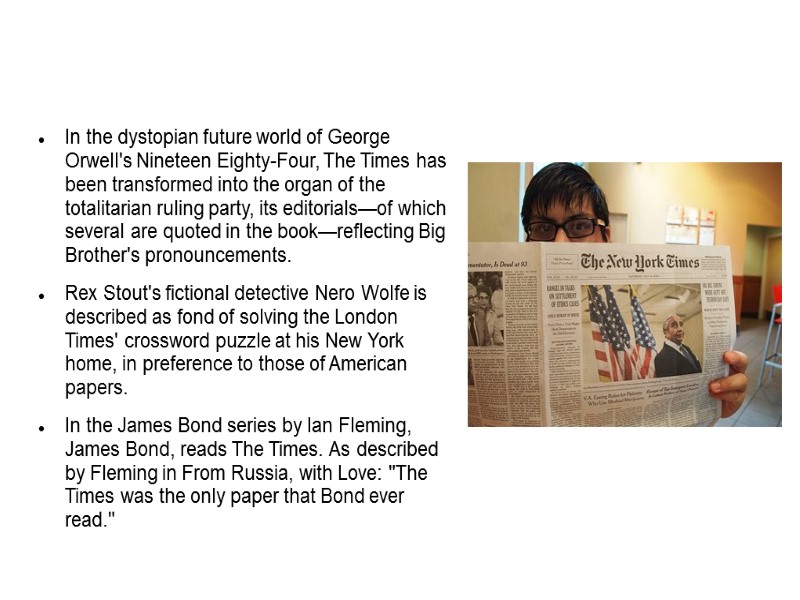
In the dystopian future world of George Orwell's Nineteen Eighty-Four, The Times has been transformed into the organ of the totalitarian ruling party, its editorials—of which several are quoted in the book—reflecting Big Brother's pronouncements. Rex Stout's fictional detective Nero Wolfe is described as fond of solving the London Times' crossword puzzle at his New York home, in preference to those of American papers. In the James Bond series by Ian Fleming, James Bond, reads The Times. As described by Fleming in From Russia, with Love: "The Times was the only paper that Bond ever read."
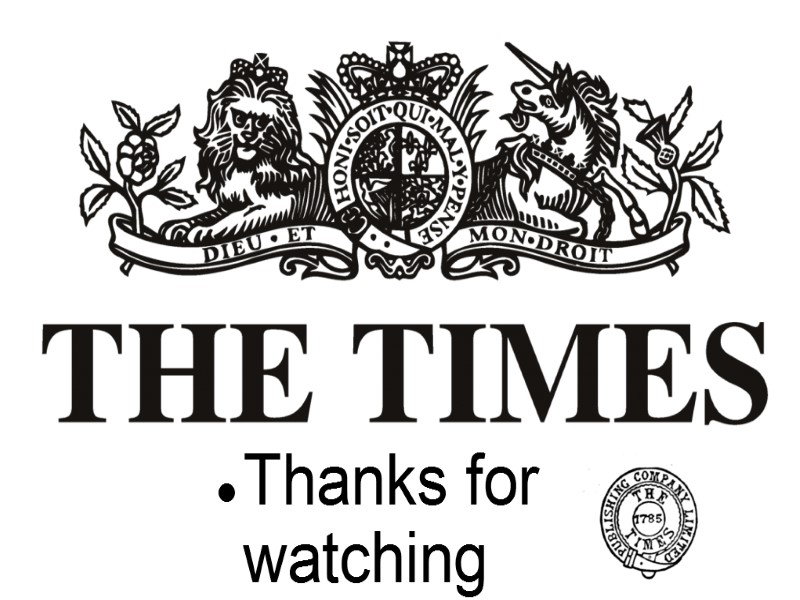
Thanks for watching
11582-artikulenko_-_the_times.ppt
- Количество слайдов: 8

